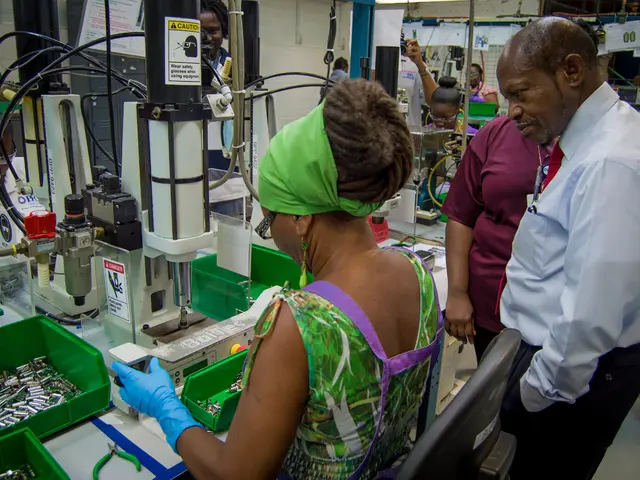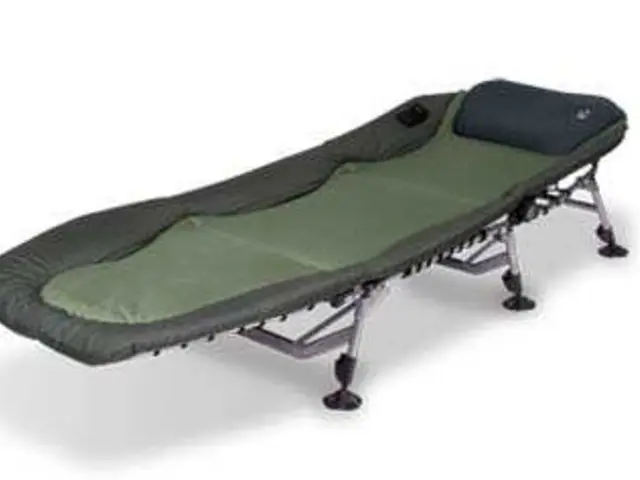Injury at Workplace: When It's Advisable to Consult a Legal Expert
Workplace injuries, such as slips, trips, and falls, are shockingly common and can occur in a variety of settings. According to statistics from the U.S. Bureau of Labor Statistics, thousands of people annually sustain injuries due to falls while on the job. These incidents range from minor injuries, such as bruises and sprains, to more severe ones, including head trauma, spinal damage, or bone fractures.
Common causes of workplace falls include wet or slippery floors, loose rugs, uneven flooring, poorly lit walkways, cluttered work areas, and faulty ladders or scaffolding. Regardless of the location – whether office, factory, construction site, retail store, or remote environment – employers have an obligation to ensure a safe workplace under Occupational Safety and Health Administration (OSHA) regulations. Negligence on the employer's part increases the likelihood of accidents.
In the event of a workplace fall, immediate action should be taken. Inform your supervisor or human resources department about the incident as soon as possible. This step is crucial for creating an official record of the occurrence and ensuring any future disputes are minimized. Seeking medical attention, even if the injury appears minor, is essential to prevent potential complications and to document the incident for any future claims. If possible, take photos of the accident scene, including any hazards that may have caused the fall, and gather the contact information of any witnesses.
While not every workplace fall necessitates legal representation, there are circumstances that warrant consulting with an attorney. A denial or delay of a workers' compensation claim can be a red flag, as can pressure from your employer to return to work too soon, serious or long-term injuries, low settlement offers, third-party involvement, or potential retaliation for filing a claim. In cases where the injured employee may be entitled to additional compensation beyond workers' compensation benefits, a personal injury lawyer specializing in slip and fall accidents could be helpful.
Workers comp attorneys can help file claims, gather and present medical records and evidence, represent the employee during hearings or appeals, negotiate fair settlements, and advise on whether to accept a settlement or pursue further action, including filing a lawsuit. In many cases, initial consultations are free, and these attorneys often work on a contingency fee basis, meaning they only get paid if the client receives compensation.
When seeking legal guidance, look for an attorney who specializes in workplace injuries or workers' compensation law and has experience handling similar cases. Reading reviews, asking for recommendations, and interviewing potential lawyers can help ensure you find the right legal representation to protect your rights and interests. Trust your instincts – a good lawyer should make you feel informed, supported, and confident about your case.
In conclusion, workplace injuries can be stressful and confusing, but it is important to remember that you are not alone. If you experience any doubt or feel that your rights are being violated, seeking professional advice can help you make informed decisions on your path to recovery.
- Employers have a responsibility to ensure a safe work environment according to Occupational Safety and Health Administration (OSHA) regulations, as workplace falls, including those caused by wet floors, loose rugs, or faulty ladders, can lead to severe injuries.
- Poor workplace wellness and medical conditions arising from workplace falls can affect not only an individual's health and well-being but also their personal and corporate finance, making it crucial to take immediate action after an accident, such as informing the supervisor, seeking medical attention, and documenting the incident.
- In some cases, workplace falls may necessitate legal intervention when there are signs of negligence on the employer's part, such as denial or delay of a workers' compensation claim, pressure to return to work too soon, or potential retaliation for filing a claim.
- Seeking legal assistance from a specialist in workplace injuries or workers' compensation law can provide guidance on filing claims, gathering evidence, negotiating fair settlements, and ensuring the employee's rights and interests are protected.
- A good attorney in workplace injury cases should be experienced, knowledgeable, and provide a sense of confidence and support to the client throughout the legal process, whether it leads to a settlement or a court trial.








